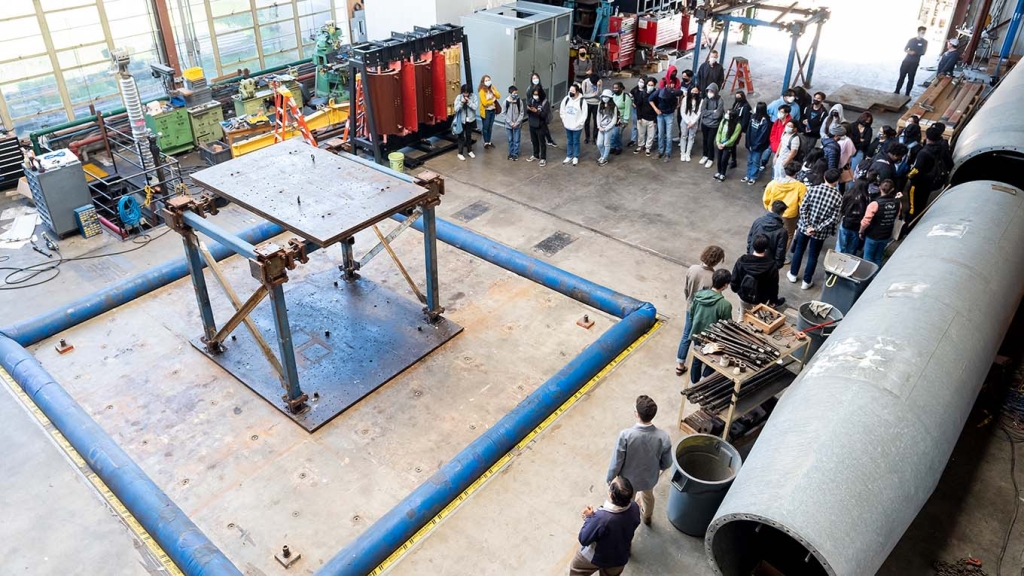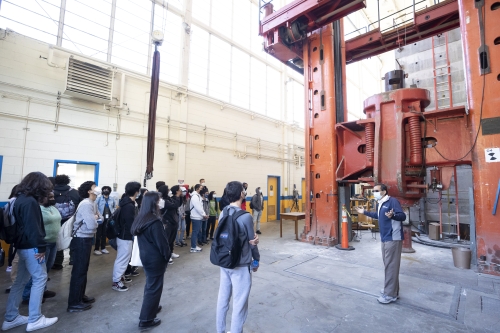By Karen Holtermann
Engineers across the country are working to bring a larger, more diverse pool of young people into their profession, bolstering both a critical American workforce and a quest for equity in engineering decision-making. But how many high school students fully understand engineering and its daily impact on their lives and their communities?
A partnership launched this spring is engaging young people in Oakland schools with civil and environmental engineering projects in their own neighborhoods. Called Community-Engaged Education in Civil & Environmental Engineering, or (CEE)2, the program is led by UC Berkeley’s Department of Civil and Environmental Engineering, in partnership with the Oakland Unified School District (OUSD) and civic leaders, agencies, engineering firms and practitioners.
Working with local leaders and groups, the CEE faculty and students and OUSD teachers are identifying engineering challenges in Oakland communities, building project-based high school curricula around them, and guiding Oakland students in a deep-dive introduction to engineering problem-solving at the local level.
“The resilience of buildings and infrastructure, the threats from climate change, urbanization, sustainability — these issues profoundly affect local communities, and their solutions depend on engineers,” says Mark Stacey, chair and professor of CEE at UC Berkeley. “This program helps young people understand what engineers do to bring safe buildings, clean water and environmentally sound solutions to their neighborhoods — and to envision how they can be a part of those solutions.”

Increasing gender and racial diversity in the civil and environmental engineering profession, Stacey adds, will bring new voices and perspectives to engineering decisions, helping ensure that those decisions benefit all communities equitably.
The program will give teachers much-needed help in delivering an enriched engineering curriculum to high school students, and it will also benefit UC Berkeley CEE students, infusing their studies with an essential understanding of real problems in real communities. It is seen by faculty and teachers as a model for such partnerships among university faculty and students, local schools, community leaders and engineers in practice.
“The partnership is a bold new direction for CEE at Berkeley, which is the No. 1 ranked program in the country,” said San Francisco-based structural and earthquake engineer David A. Friedman, a Berkeley alumnus who, with his wife Paulette J. Meyer, is funding the first three years to launch (CEE)2. “It advances our aspirations for deepening the education of Berkeley CEE students, broadening gender and racial diversity in our profession and shining a light on the value of civil and environmental engineers.”
By working with OUSD teachers, Berkeley’s faculty and students this spring are reaching more than 200 Oakland students, with a three-year goal of growing to more than 1,000 students from several racially diverse Bay Area communities. In subsequent years, the Berkeley engineers hope to attract additional support from industry partners and possibly expand the program into other local school districts.

